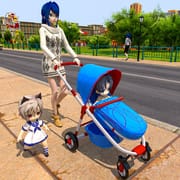Increasing in-store knowledge is essential for enhancing customer service and operational efficiency. When employees are well-informed about the products and services offered, they can assist customers more effectively, leading to a better shopping experience. This knowledge can encompass various aspects, including product specifications, pricing, promotions, store layout, and return policies. By familiarizing themselves with these details, employees can answer customer inquiries confidently and accurately, reducing the need for frequent referrals to managers or other staff members. This not only streamlines the shopping process for customers but also empowers employees, fostering a sense of ownership and responsibility in their roles.
To build this knowledge base, employees can engage in several strategies. First, regular training sessions can be implemented, focusing on different product categories or store policies. These sessions can include hands-on demonstrations, role-playing scenarios, and quizzes to reinforce learning. Additionally, creating a comprehensive resource guide or manual that employees can reference during their shifts can be beneficial. This guide should include key information about products, frequently asked questions, and troubleshooting tips. Encouraging employees to take notes and share insights with one another can also promote a culture of continuous learning and collaboration. Furthermore, utilizing technology, such as mobile apps or internal databases, can provide instant access to information, allowing employees to quickly find answers without needing to seek assistance from others.
Another effective approach to enhancing in-store knowledge is to foster a culture of curiosity and engagement among employees. Encouraging staff to explore the store, interact with products, and participate in vendor training can deepen their understanding of what they are selling. Employees should be motivated to ask questions, seek clarification, and share their experiences with colleagues. This collaborative environment can lead to a more knowledgeable workforce, as employees learn from one another and build on each other's strengths. Additionally, recognizing and rewarding employees who demonstrate exceptional product knowledge can further incentivize staff to invest time in learning. By prioritizing in-store knowledge, businesses can create a more efficient and customer-friendly environment, ultimately leading to increased sales and customer loyalty.







 0.00
0.00 Download
Download
 APK
APK












